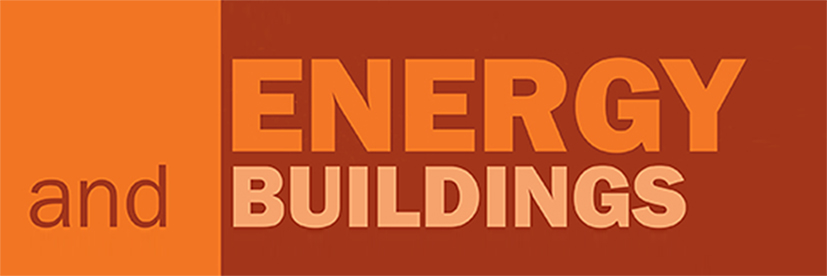ISSN (print): 0378-7788
ISSN (online): 1872-6178
Call of the Journal:
Aug
2021
Oct
2021
With the increasing urban population and the continuous expansion of the city, the development and use of underground space is being rapidly processed to save above-ground space land improve transport efficiency, etc. It is also utilized for the purpose of business, transportation, office and residential space, etc. For underground space, both the form of the space and the environmental media are quite different from over ground space, which makes it challenging to create safe, comfortable and energy-friendly underground space environments. To make full use of the natural resources and construct sustainable underground space environments, interdisciplinary knowledge and collaboration are required, such as architecture design, building technologies, civil engineering, transportation, management of air quality and other environmental factors. This issue aims to provide a platform for researchers and colleagues to share the design strategies, leading-edge technologies and solutions related with sustainability and energy efficiency of underground issues.
The submitted manuscript must meet the aim and scope of the ENB journal which should be focusing on fundamental and applied research aimed at understanding, planning, designing, controlling and promoting energy-efficient underground spaces. Original and review research papers on the following topics are welcomed but not limited to: Underground space design from the perspectives of efficient use of natural energy/resources (natural lighting, ventilation etc.); Energy consumption composition, resource utilization of the underground space; Integrated development of above-ground and underground space to build energy-efficient underground environment; Characteristics/issues of energy use and environment control (e.g. temperature, humidity, light and acoustics) of underground spaces; air quality in and around underground spaces; Low-cost sensing for managing environmental, air pollution and energy management in underground spaces; Underground space fire prevention and smoke prevention; Advanced technologies for creating safe, healthy and energy-efficient underground spaces, such as HVAC system, ventilation technology, air cleaning device, lighting equipment, sensors and insulation materials; Multiple-objective optimization of underground environment, considering thermal-humid environment, light, acoustics, air pollution, comfort, safety, health, energy-efficiency and low carbon emissions. Economics is always an interesting and important issue; Application of cutting-edge technologies (e.g. artificial intelligence, big data et al.) in underground environment design/control.
Sustainable Underground Spaces | Design, Environmental Control and Energy Conservation
With the increasing urban population and the continuous expansion of the city, the development and use of underground space is being rapidly processed to save above-ground space land improve transport efficiency, etc. It is also utilized for the purpose of business, transportation, office and residential space, etc. For underground space, both the form of the space and the environmental media are quite different from over ground space, which makes it challenging to create safe, comfortable and energy-friendly underground space environments. To make full use of the natural resources and construct sustainable underground space environments, interdisciplinary knowledge and collaboration are required, such as architecture design, building technologies, civil engineering, transportation, management of air quality and other environmental factors. This issue aims to provide a platform for researchers and colleagues to share the design strategies, leading-edge technologies and solutions related with sustainability and energy efficiency of underground issues.
The submitted manuscript must meet the aim and scope of the ENB journal which should be focusing on fundamental and applied research aimed at understanding, planning, designing, controlling and promoting energy-efficient underground spaces. Original and review research papers on the following topics are welcomed but not limited to: Underground space design from the perspectives of efficient use of natural energy/resources (natural lighting, ventilation etc.); Energy consumption composition, resource utilization of the underground space; Integrated development of above-ground and underground space to build energy-efficient underground environment; Characteristics/issues of energy use and environment control (e.g. temperature, humidity, light and acoustics) of underground spaces; air quality in and around underground spaces; Low-cost sensing for managing environmental, air pollution and energy management in underground spaces; Underground space fire prevention and smoke prevention; Advanced technologies for creating safe, healthy and energy-efficient underground spaces, such as HVAC system, ventilation technology, air cleaning device, lighting equipment, sensors and insulation materials; Multiple-objective optimization of underground environment, considering thermal-humid environment, light, acoustics, air pollution, comfort, safety, health, energy-efficiency and low carbon emissions. Economics is always an interesting and important issue; Application of cutting-edge technologies (e.g. artificial intelligence, big data et al.) in underground environment design/control.
Compendex; Architectural Periodicals Index; Cambridge Scientific Abstracts; Current Contents – Engineering, Computing & Technology; Current Energy Information; Energy Abstracts; EIC/Intelligence (Energy Index); Environmental Periodicals Bibliography; Focus On: Global Change; Fuel and Energy Abstracts; INSPEC; International Building Services Abstracts; Sage Urban Studies Abstracts; Referativnyi Zhurnal VINTI-RAN (Russian Academy of Sciences); Scopus; Science Citation Index Expanded.
Info at: www.elsevier.com/journals/energy-and-buildings/0378-7788/open-access-options
Guest Editors
Prof. Shi-Jie Cao
Prof. Jiawei Leng
Prof. Prashant Kumar
Assistant Prof. Dahai Qi









